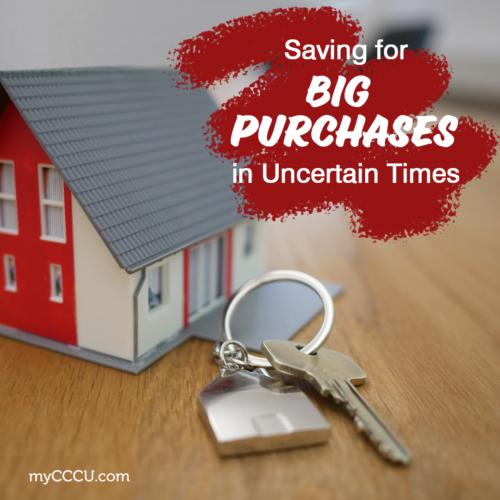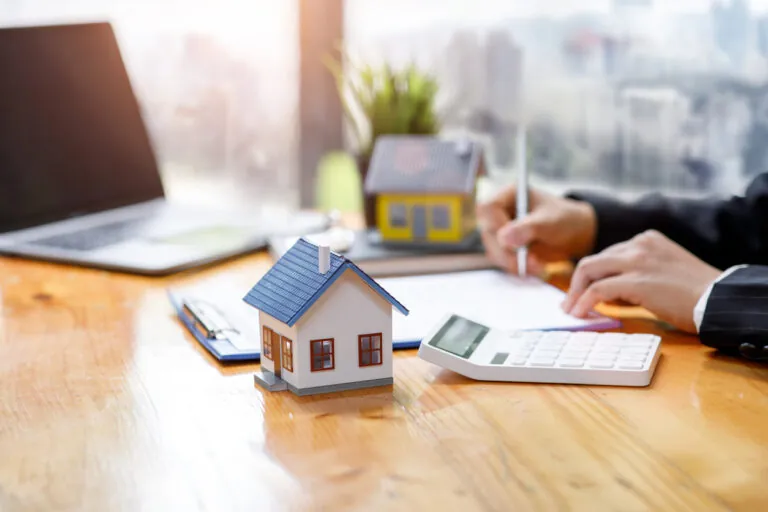Saving for Big Purchases in Uncertain Times
July 10, 2020

Have you been wanting to buy a house or a new car? You might think that now is not the time to be making a big purchase. But with interest rates on mortgages and auto loans going down, it’s a good time to buy. Here’s how to get started on your way to buying the house or car you want.
1. Find out where your money’s going. If you don’t have a budget in place, this is the time to make one. Track your monthly income and spending. You’ll need to have some money left over between your income and your spending. You probably haven’t been going out to eat or buying gas for your car as much lately, so put that extra cash in your savings!
2. Is your emergency fund fully funded? Everyone needs an emergency fund for life’s unexpected expenses. If you don’t have at least three to six months’ worth of expenses saved up, start there before you begin saving for your house or car. After all, you never know when you’ll need an emergency repair to a roof or an engine.
3. Do some research. If you want to buy a house, look at a real-estate site like Zillow or Redfin to give you an idea of house prices. Once you have a better idea of what you want, HomeAdvantage® can help you narrow down your search. Using HomeAdvantage®, you can search listings, find a realtor, and even search for the right mortgage for your needs. If you want to buy a car, check out Autoland or AutoSMART for one-stop car shopping. Autoland and AutoSMART both allow you to research the car you want. AutoSMART will help you find dealers near you, and Autoland will even deliver the car you want to a place you choose.
You may find that the house or car you want to buy is a bit more expensive than you thought it would be. That’s why it’s so important to do your price research first. This is the time to think about what features are most important for you and your family. Would you consider a different neighborhood where costs are lower? Would you consider a car a few years older than the one you originally wanted? It’s better to know now and plan accordingly than to be disappointed later.
4. Don’t forget extra costs. When you’re planning the amount you want to save, remember all the costs you may need to cover. If you’re buying a house, you may need to save up for extras like closing costs and an independent appraisal. And if you’re not putting down 20% of the purchase price, you may need to pay for private mortgage insurance.
If you’re buying a car, you may need to pay for extras like sales tax and registration fees. If you’re financing the car, that comes with extra fees as well. If you’re buying used, you may want to pay for your mechanic to check the car out before you finalize the sale.
5. Get the most for your money. Once you’ve settled on the amount you need to save, figure out how much margin you have in your budget to put aside each month. Then, shop around to find the best rates for interest-bearing accounts. A money market or certificate account will most likely give you a better rate than a simple savings account.
Once you’ve saved up the amount you need for a down payment, be sure to look for the best rates on car or home loans. Belonging to a credit union will often get you the best rates. Finally, you can enjoy your new car or home knowing that you got the best deal through careful planning and saving.
This article should not be considered legal, tax, or financial advice. You may wish to consult a tax or financial advisor about your individual financial situation.



